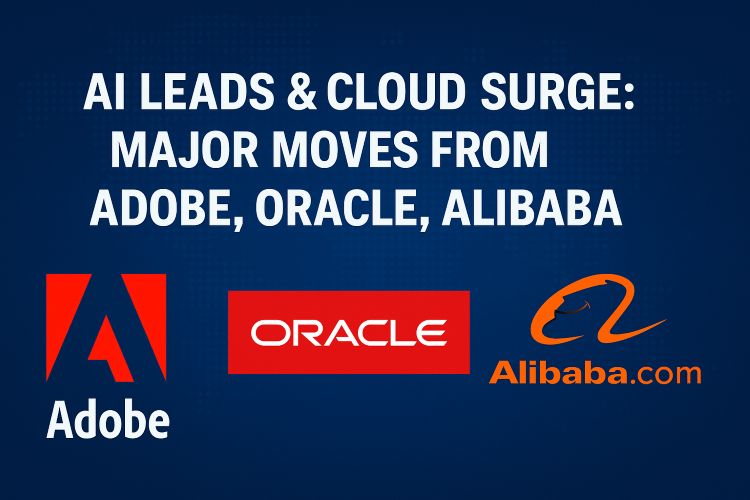AI Navigation
- articleAI Trends
- lightbulb_2AI Tips
- assistant_navigationAI Navigation
- heatHot Articles
- emergency_heat_2Hot Tips
- format_list_numberedPrompt Formatter
- psychologyTest Center(RPI)
September 11, 2025 · 24-Hour AI Briefing: Adobe Unveils AI Agents, Oracle Soars 36%, Alibaba Challenges Meituan
In the past 24 hours, the AI and tech world has once again delivered a wave of headline-making moves. Adobe is doubling down on AI agents, Oracle just posted its strongest stock rally in decades, and Alibaba is striking back at Meituan in local services. Here’s a quick breakdown of the key developments — and what they mean.

Adobe launches a suite of AI agents
Adobe introduced a new lineup of AI-powered agents designed to help users with audience building, campaign orchestration, creative experiments, data insights, website optimization, and customer support. The company also announced plans to release the Experience Platform Agent Composer, enabling clients to customize and configure their own agents. Additionally, Adobe revealed new partnerships with Cognizant (CTSH.US), Google Cloud (GOOG)(GOOGL.US), Havas (HAVSF.US), Medallia, and Omnicom (OMC.US).
Analysis: Adobe’s AI agents span across key marketing use cases, from customer engagement to performance optimization. Partnering with major players like Google Cloud, Cognizant, and Omnicom highlights Adobe’s ambition to create an open, cross-platform AI ecosystem. Facing pressure from the generative AI wave, Adobe has little choice but to embrace change. The real question: is this a proactive market-driven move, or a reactive necessity in the face of disruption?
Oracle shares surge 36% in one day
Oracle stock jumped nearly 36% on September 10 — its biggest single-day gain since 1992. The rally came after the company disclosed it had signed four multi-billion-dollar contracts with three different clients in its fiscal Q1. As a result, Oracle’s RPO (remaining performance obligations) backlog surged 359% year-over-year to $455 billion. Executives added that further multi-billion-dollar contracts are expected in the coming months, which could push the total backlog above $500 billion.
Analysis: The $455 billion backlog blew past Wall Street’s expectation of around $180 billion, underscoring Oracle’s strong positioning in cloud infrastructure for AI workloads. Much of this momentum comes from its collaboration with Nvidia GPUs, which has resonated with top-tier global clients. While the growth is striking, investors will keep an eye on renewal rates and long-term profitability of these mega-contracts.
Alibaba rolls out “Gaode Street Ranking”
Alibaba launched a new feature called the “Gaode Street Ranking,” aiming directly at Meituan’s dominance in local services. The ranking system resembles Meituan’s Dianping lists, covering restaurants, attractions, hotels, and more — but with a different evaluation logic. Instead of relying solely on user reviews, it combines real navigation behavior from Gaode Maps (searches, routes, arrivals, favorites) with Alipay’s Sesame Credit scores to build a new trust framework for offline services.
Analysis: By blending behavioral data with credit metrics, Alibaba significantly reduces the influence of fake reviews and paid rankings, making lists more authentic and trustworthy. With Gaode Maps’ massive user base of 1 billion+ and 170 million DAUs — driving 120 million daily local searches — the “Street Ranking” comes with a huge built-in advantage. This summer, Alibaba has already pushed back against Meituan with Taobao flash sales and Ele.me subsidies. Now, by leveraging Gaode’s ecosystem, it may finally have found a formula to chip away at Meituan’s lead.
For more cutting-edge AI updates, business insights, and tech trends, visit:
Explore iaiseek.com
Want to catch up on more major AI developments from the past 72 hours? Read:
September 10, 2025 · 24-Hour AI Briefing: Apple unveils the thinnest iPhone ever, Oracle secures $455B in contract backlog, Arm launches offline AI architecture